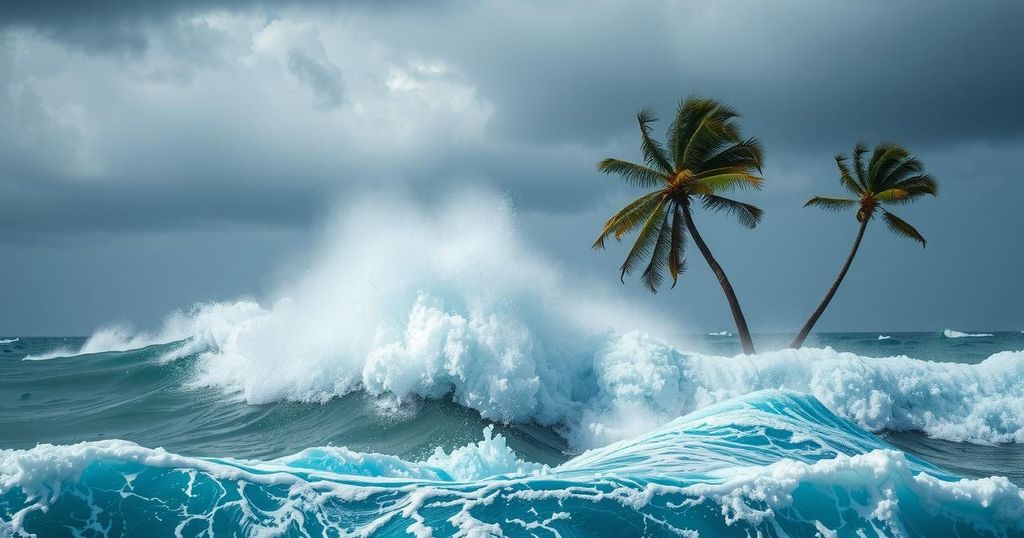Weather
World news
ADRIATIC SEA, AFRICA, ANTSIRANANA, ASIA, ATLANTIC OCEAN, AUSTRALIA, BORA, CHIDO, CROATIA, CUBA, DIKELEDI, EUROPE, INDIA, INDIAN OCEAN, INDONESIA, MADAGASCAR, MAYOTTE, MOZAMBIQUE, MOZAMBIQUE CHANNEL, NATURAL DISASTER, NATURAL DISASTERS, NORTH AMERICA, OCEANIA, POWER OUTAGES, RAIN, VO, VOHEMAR, WEATHER
Daniel O'Connor
0 Comments
Tropical Cyclone Dikeledi: Fatalities in Madagascar and Impact on Mayotte
Tropical Cyclone Dikeledi made landfall in Madagascar, resulting in three fatalities and causing significant flooding in Mayotte. The storm is expected to intensify again as it tracks southward into Mozambique, prompting concerns about additional severe weather impacts. Concurrently, Bora winds generated strong gusts in the Adriatic Sea, expected to ease off shortly.
During the recent weekend, Tropical Cyclone Dikeledi posed significant threats to eastern Africa. Initially a minor disturbance between Indonesia and Australia, it rapidly intensified into a tropical cyclone, reaching winds of up to 74 mph, categorizing it akin to a category 1 hurricane. The cyclone made landfall over northern Madagascar, resulting in at least three fatalities due to severe weather conditions.
Following its landfall, Dikeledi weakened into a tropical storm before moving into the Mozambique Channel. The system subsequently affected Mayotte, leading to severe flooding and mudslides, displacing over 14,500 individuals who sought refuge in emergency shelters until conditions improved. It is projected that Dikeledi will track southward, potentially reintensifying into a tropical cyclone and impacting Mozambique with heavy rains and strong winds.
Over the weekend, the Adriatic Sea experienced strong gusts attributed to the Bora winds, which are common during winter months. These climatic phenomena are characterized by cold, downslope winds that can lead to hazardous conditions. The Bora winds are forecasted to taper off on the following Tuesday, while the threat from Cyclone Dikeledi remains an ongoing concern for the region.
The recent development of Tropical Cyclone Dikeledi has underscored the vulnerability of Madagascar and surrounding territories to extreme weather events. Tropical cyclones can form rapidly over oceanic regions, resulting in significant impacts on local communities. Dikeledi’s evolution from a tropical disturbance to a powerful cyclone emphasizes the potential dangers that arise from climate change, which is contributing to increasing occurrences of severe weather patterns globally, particularly in low-lying coastal areas.
In conclusion, Tropical Cyclone Dikeledi has tragically claimed three lives in Madagascar and has severely impacted Mayotte, leading to extensive flooding and displacement of residents. As the cyclone progresses southward into the Mozambique Channel, it is anticipated to regain strength, posing additional risks to surrounding regions. This event highlights the urgent need for preparedness and resilience strategies in the face of natural disasters exacerbated by climate change.
Original Source: www.theguardian.com




Post Comment